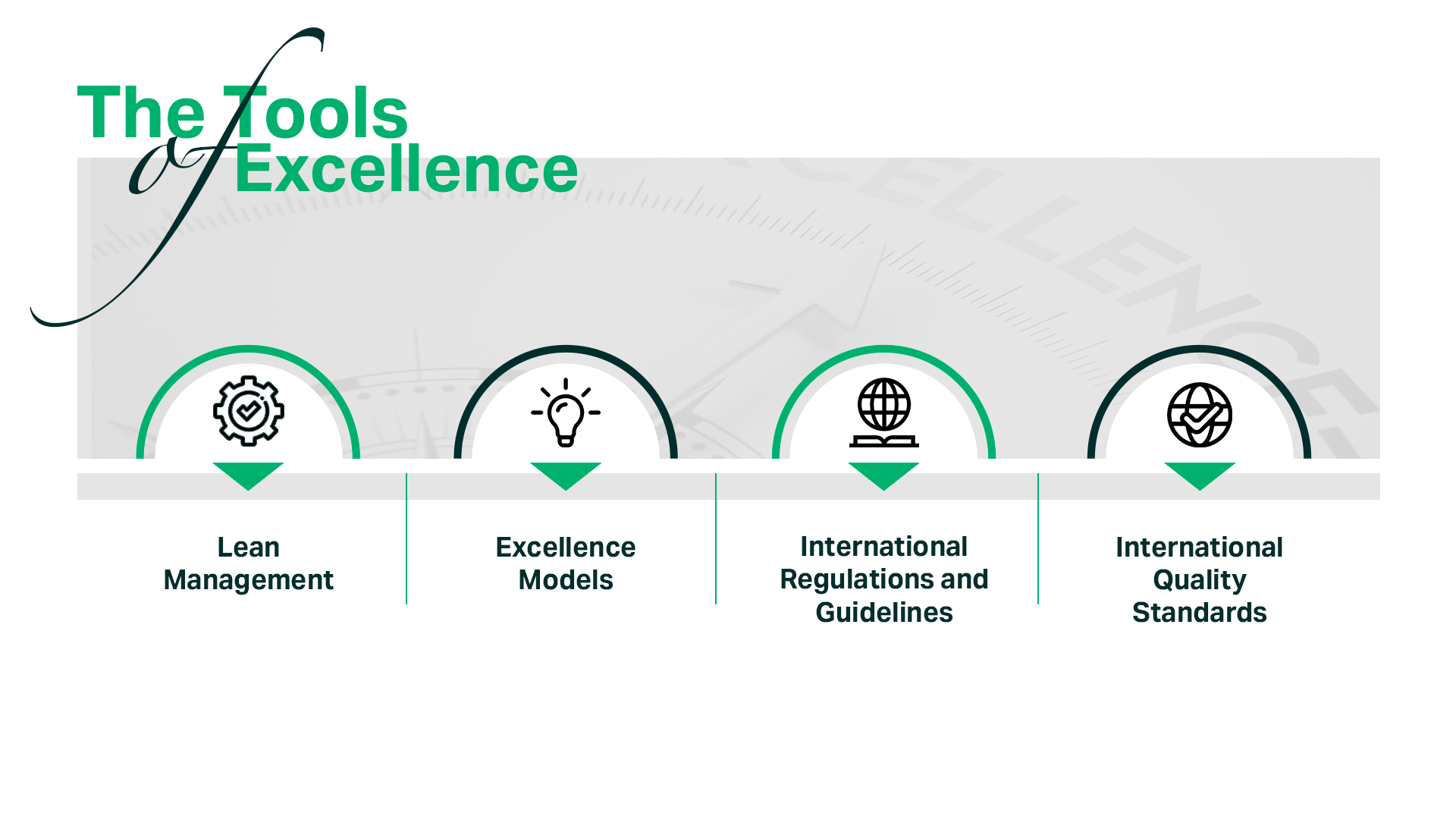The concept of "Excellence" is ubiquitous in strategic planning, debriefs, and sustainability reports. It can seem daunting when used alongside terms like "certification," "continuous improvement," and "UNSDGs." However, the core principle of Excellence is actually quite straightforward: surpassing performance and systematically measuring progress to eliminate shortcomings.
The Tools of Excellence
To achieve Excellence, organizations utilize a diverse set of tools and methodologies tailored to specific situations. Here's a breakdown of some key categories:
 Lean Management:
Lean Management:
- 5S: This method focuses on workplace organization and cleanliness (Sort, Straighten, Shine, Standardize, Sustain). It fosters efficiency and productivity in any environment.
- Kaizen: The Japanese philosophy of continuous improvement. It emphasizes involving all levels of the organization in identifying problems, devising solutions, and implementing changes.
- PDCA Cycle (Plan-Do-Check-Act): This iterative framework is the foundation of Lean Management. It facilitates a structured approach to implementing improvements, evaluating results, and adapting strategies.
- Kanban: A visual system that optimizes production and inventory management. It ensures workers have the necessary supplies when needed, minimizing waste and enhancing efficiency.
- Value Stream Mapping (VSM): This visual tool helps analyze production processes, identify bottlenecks, and design system-wide improvements.
Excellence Models:
- These frameworks, such as the Malcolm Baldrige Quality Award and EFQM Excellence Model, provide a comprehensive approach to organizational excellence. They offer guidelines for assessing performance across various aspects like leadership, strategy, customer focus, and innovation.
International Regulations and Guidelines:
- These address global challenges like climate change, labor practices, and social responsibility. Examples include the UN Global Compact and the UN SDGs. These frameworks set standards for responsible and sustainable business practices.
International Quality Standards:
- ISO standards are widely used frameworks for quality management in specific areas. Standards like ISO 9001 (quality processes), ISO 14001 (environmental management), and ISO 27001 (information security) provide a structured approach to achieving excellence in specific areas.
While the terminology and approaches appear multifaceted, they all ultimately stem from the core principles embodied in the Deming Cycle (Plan-Do-Check-Act). Excellence isn't about conflicting approaches; it's about applying different tools and frameworks in a focused and analytical manner to identify problems, implement improvements, and measure progress. It's a continuous journey towards superior performance and sustainability.







